 I certainly consider myself a Charlotte Mason homeschooler, though I am just as certain that I do not exactly follow her methods. It appears this is not uncommon among CMers.
I certainly consider myself a Charlotte Mason homeschooler, though I am just as certain that I do not exactly follow her methods. It appears this is not uncommon among CMers.What I have embraced fundamentally, as the title of this blog reflects, is that "education is the science of relations." Those relations are lifelong pursuits when education is an atmosphere, a discipline, and a life. They are best formed through living books and materials. The rest is an eclectic mix of educational material to achieve these goals.
While Ambleside Online and Mater Amabilis are outstanding programs, I wanted to combine my children in several subjects, so the separate yearly schedules made that very difficult. I refer to and recommend them frequently. I also view books like This Country of Ours and Apologia Science as textbooks compared to the many other books available about specific aspects of history and science.
Having said that, our school is not void of all
 curricula; instead we have an eclectic mix of living educational material that best works for our family. Here is an overview of My Charlotte Mason educational program:
curricula; instead we have an eclectic mix of living educational material that best works for our family. Here is an overview of My Charlotte Mason educational program:Religious Education: I spend one day a week for each child teaching Faith and Life using the teacher's manual after they have done the reading in the student book. Other days they are reading the Bible and the Saints.
Math: we all love M.E.P. I set aside 40 minutes per child to teach it 3 days a week. We do various living math 2 days a week.
 Language Arts: Each child works independently. Ds#1 is on year 2 of 3 in Intermediate Language Lessons, while Ds#2 is on year 2 of 2 in Primary Language Lessons. These books have a wonderful mix of grammar, picture study, dictation, and copywork. Ds#3 needs to solidify his reading, so I will continue Hooked on Phonics with him (a program I've had for 7 years now.) He'll also be doing copywork.
Language Arts: Each child works independently. Ds#1 is on year 2 of 3 in Intermediate Language Lessons, while Ds#2 is on year 2 of 2 in Primary Language Lessons. These books have a wonderful mix of grammar, picture study, dictation, and copywork. Ds#3 needs to solidify his reading, so I will continue Hooked on Phonics with him (a program I've had for 7 years now.) He'll also be doing copywork.Literature: Ds#1 and Ds#2 read independently while I read aloud to Ds#3; art study they read and view independently. They work on Rosetta Stone Italian separately. I may try and fit in some basic Latin, too, though I am not sure if I will do this with Ds#1 only or all 3.

Everything else I combine, starting with the Program for Achieving Character Education (P.A.C.E.) I get poetry and copywork from it; the stories from William Bennett's The Book of Virtues and The Moral Compass we read aloud together.
Shakepeare and tales we read together, and we do art projects together. I even do Writing together, though each are of course working on their own pieces.
 U.S. History, World History, Science, and Nature I approach in a similar way using the CONNECT method as described in the Connecting With History program. I introduce and discuss whatever topic we are covering to all of them. Each week we have short readings from our "spine" and work on timelines, cultures, famous people, and experiments together. Beyond that I give them individual books to read (or to have read to them) at their own levels, and they narrate (written or oral) what they have read. They also each pick projects to work on throughout the weeks; these are presented at the end of each topic. Everything gets put into notebooks or lapbooks.
U.S. History, World History, Science, and Nature I approach in a similar way using the CONNECT method as described in the Connecting With History program. I introduce and discuss whatever topic we are covering to all of them. Each week we have short readings from our "spine" and work on timelines, cultures, famous people, and experiments together. Beyond that I give them individual books to read (or to have read to them) at their own levels, and they narrate (written or oral) what they have read. They also each pick projects to work on throughout the weeks; these are presented at the end of each topic. Everything gets put into notebooks or lapbooks.We start at 8 am and finish by noon, with additional time in the afternoon for them to work on their projects. It is not what Charlotte Mason described, with children reading all morning, their attention kept by the wonderful books and that they may be called upon to narrate; and then long afternoons outdoors for masterly inactivity and nature study. Yet through My Charlotte Mason I am striving to meet that fundamental principle: Education is the Science of Relations.



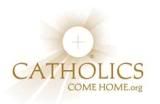
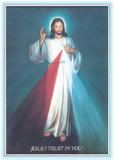
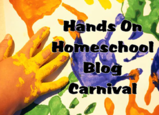
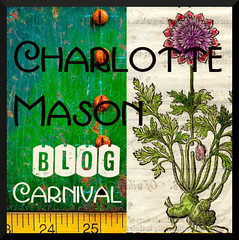


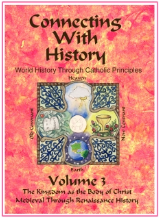





7 comments:
Thanks for submitting this to the carnival. I actually have another entry that pretty much talks about the same thing...I think the readers will enjoy both the viewpoints.
Barb-Harmony Art Mom
I think the most important thing is to make reasoned, informed decisions. If your homeschool parts ways with CM, that's fine. The main thing is to know WHY you're doing that. What are your goals or who are your children that cause you to make those choices? I think even CM couldn't argue with THAT. :-)
Your approach to science and history sounds much like ours.
Thanks for this post it was very encouraging. I also wanted to combine as many subjects as possible and I enjoyed seeing how someone else does it.
Thanks for this post. After reading it, I looked at the MEP math program. I think I'm going to try it for my daughter. Math has been a real sticking point for us. I was planning on incorporating even more living math than I already do. This seems like it will lend itself ideally.
Enjoyed seeing your eclectic and very personalized school curriculum!
Thanks for sharing. I like seeing what other people are doing, especially if Charlotte mason is involved.
I agree with the comments. From another post, I think you are right, by unit study I think about the fragmented and simplistic lessons imparted in public schools (I've been there, I used to be a ps teacher), such as in Kindergarten say, let's learn for this week about apples, or the letter "M". They insult the child, as CM says.
CM also envisioned mothers and educators to do as you, to have a goal in mind, to use living books, and to educate.
I see you depart from her, and that's fine. Narration, however, it's not that 'light' as it sounded when I read it in your post (maybe it wasn't your intention), narration in the older years it's done by writing as well, and what many don't know, it's that CM style is not simply reading good living books, but she always contested there has to be a Math program, and phonics are crucial, it's only that she did not advocated to do those more 'formal' teachings early on, and focus more on 'masterly inactivity' until say, at least 5 years. For the 6 year old children, she said short (but fruitful lessons) that, as you say, are more designed to guide them than to lecture. Also we need to have in mind her nature walks were the precursors of extensive research in the classroom, lab, but, again, student originated, not teacher fed.
In conclusion, if CM inspires you, and what you are doing benefits your children and helps you achieve your goal, go for it. Simply CM promotes Apologia, so I see you use a lot of CM friendly materials, and you have your OWN CURRICULUM, so congrats to you, and keep it up!
Post a Comment